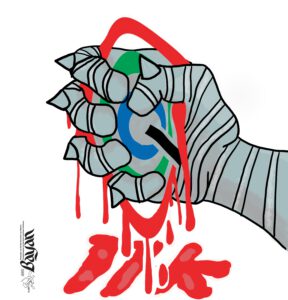Covid-19 pandemic aggravates global hunger


The Covid-19 pandemic continues to aggravate hunger in countries where food crisis is most severe and is creating new epicenters of hunger across the globe. In a report published last July 9, Oxfam International identified 10 countries where hunger is most severe, as well as four countries which are experiencing rapidly rising levels of hunger due to the pandemic. Oxfam is a confederation of 20 independent charitable organizations focused on the alleviation of global poverty.
Using data from the World Food Programme, Oxfam projected that 12,000 people per day could die from hunger. This figure is higher than the 10,000 Covid-19 deaths per day recorded in April which is already the highest since the onslaught of the pandemic. The number of people in crisis level hunger is projected to rise to 270 million before the end of the year, an 82% increase from 149 million in 2019.
It noted that among the factors behind this is the disruption in the production of small-scale farmers who are at the backbone of local food systems in many poor countries. Farmers are adversely affected by lockdowns as they are restricted to access their land to cultivate, plant or harvest crops. Travel restrictions impede access to markets to sell their produce or buy seeds and tools. The disruption in local production has resulted in inflation in many countries.
Additionally, the shutdown of economies resulted in massive job losses in the past months. Latest statistics by the International Labor Organization indicate that 305 million full time jobs have been lost across the world because of the pandemic. The figure still excludes workers in the informal sector. Oxfam said that millions of people could no longer afford to eat after losing their jobs and lack of subsidy from their respective governments. It disclosed that hunger and food crisis is worst in Yemen, Democratic Republic of Congo (DRC), Afghanistan, Venezuela, West African Sahel, Ethiopia, Sudan, South Sudan, Syria and Haiti. Hunger levels are also rising in poor countries including India, South Africa and Brazil.
Amid rising levels of hunger, the eight biggest food and beverage manufacturing multinationals continue to rake in superprofits and paid out over $18 billion to their shareholders since January this year. These companies include Coca-Cola which paid out dividends worth $3.5 billion, Danone ($1.35 billion), General Mills ($594 million), Kellogg ($391 million), Mondelez ($408 million), Nestlé ($8.2 billion for the entire year), PepsiCo ($2.7 billion) at Unilever (around $1.2 billion). The total amount is ten times bigger than the funding requested by the United Nations to feed the most vulnerable peoples across the world.












